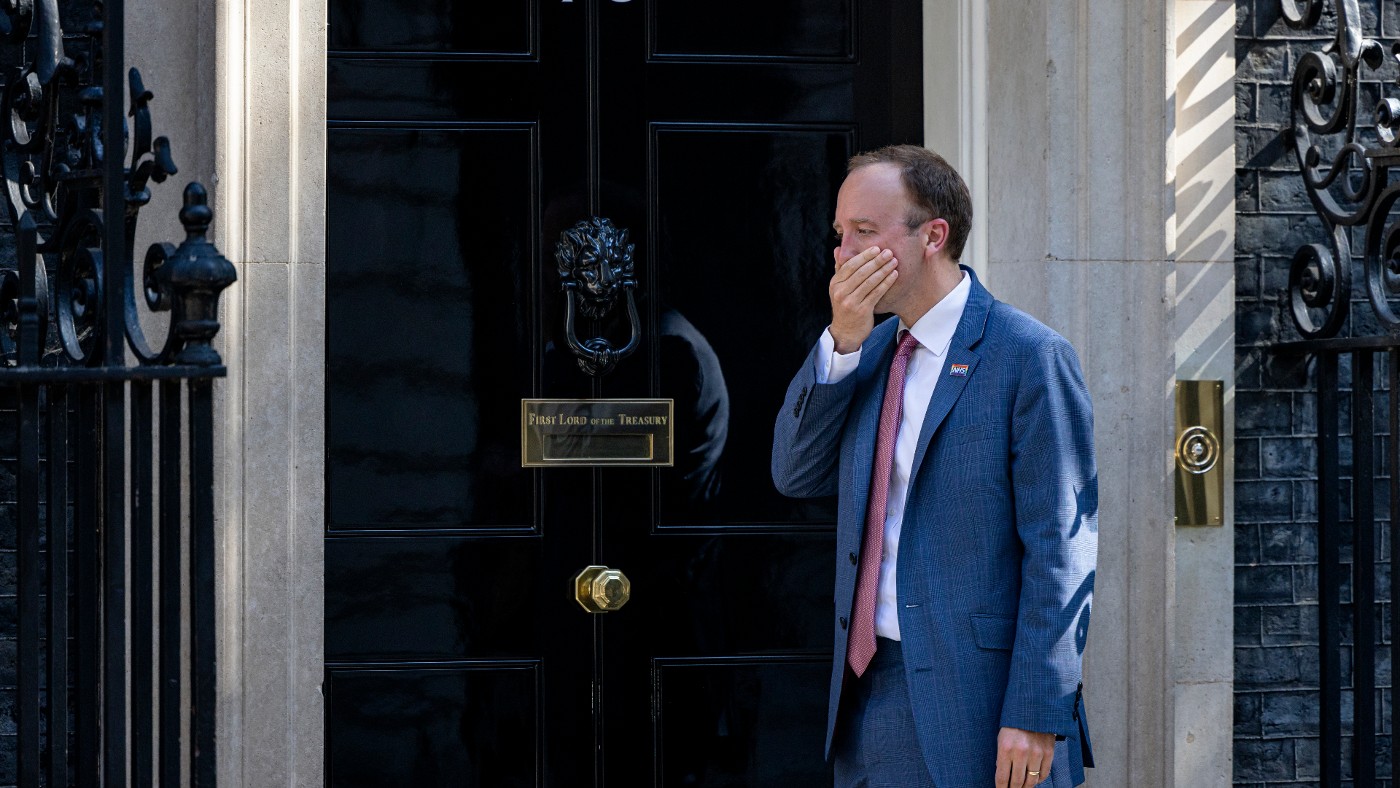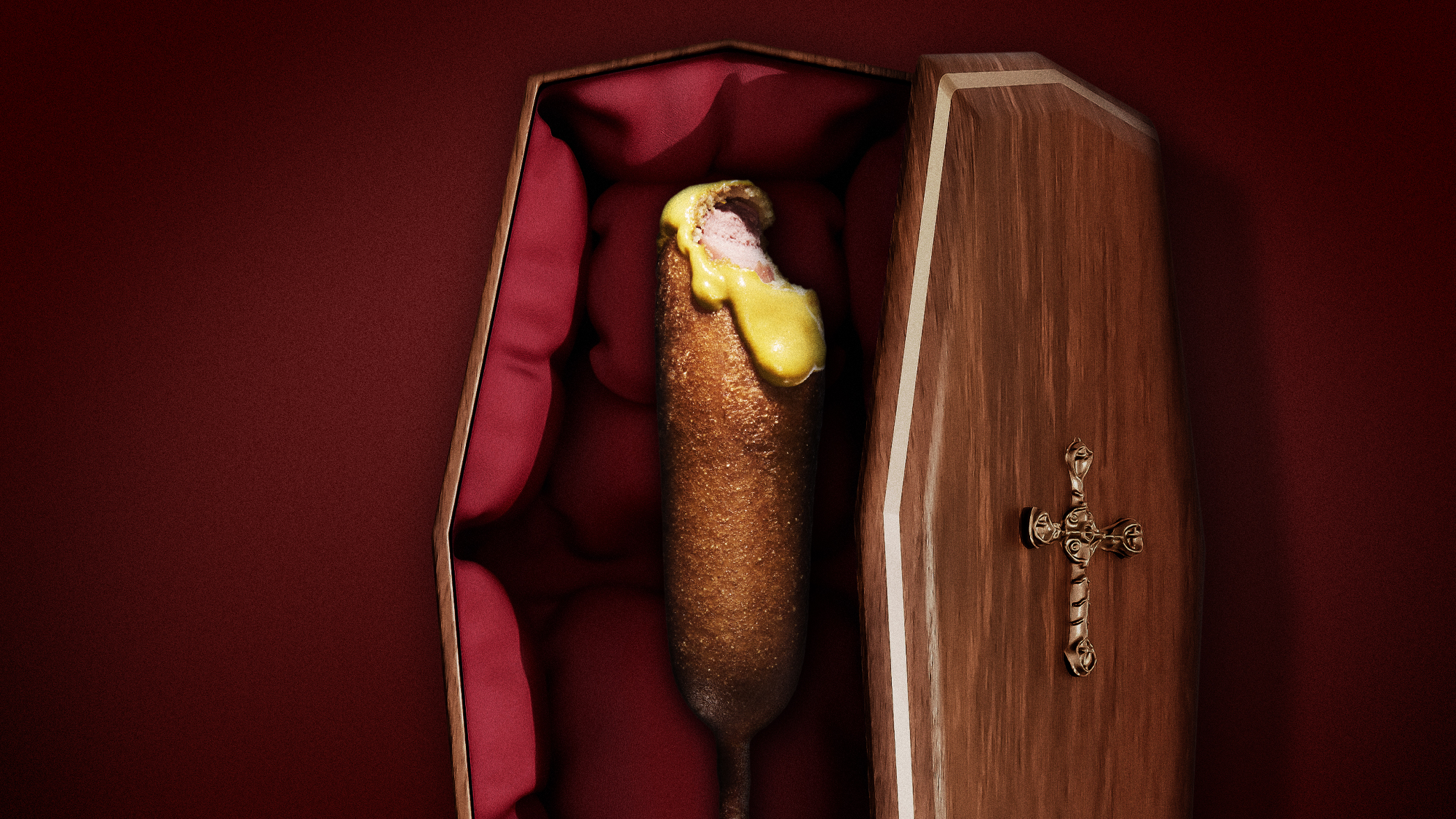What next after the High Court’s Covid care home ruling?
Government is ‘staring down the barrel of potentially very costly claims’ after victory for bereaved relatives

A free daily email with the biggest news stories of the day – and the best features from TheWeek.com
You are now subscribed
Your newsletter sign-up was successful
Hospital patients were unlawfully sent to care homes during the Covid pandemic despite more than 20 warnings of asymptomatic Covid-19 transmission, the High Court has said.
The ruling has led to renewed calls for former health secretary Matt Hancock to apologise for his actions and an expert has predicted that the government could now be facing “very costly” legal claims.
The ruling
The Week
Escape your echo chamber. Get the facts behind the news, plus analysis from multiple perspectives.

Sign up for The Week's Free Newsletters
From our morning news briefing to a weekly Good News Newsletter, get the best of The Week delivered directly to your inbox.
From our morning news briefing to a weekly Good News Newsletter, get the best of The Week delivered directly to your inbox.
A 75-page High Court ruling found that the government acted unlawfully when it sent untested patients into care homes in England at the start of the pandemic.
Public Health England advised ministers as early as March 2020 against allowing hospital patients who may have had Covid-19 but who did not have symptoms to be transferred from hospitals to care homes, reported the i news site.
Indeed, ruled Lord Justice Bean and Mr Justice Garnham, there were more than 20 occasions, between late January and the middle of March 2020, when scientific advisers and academic papers warned it was likely that Covid could be passed on without symptoms.
The judges said it was “apparent” that ministers were “alive to the possibility of pre-symptomatic infection and transmission”.
A free daily email with the biggest news stories of the day – and the best features from TheWeek.com
This “undermines” claims made yesterday by Boris Johnson and Matt Hancock, the health secretary at the time, that they did not know that Covid-19 could be transmitted by people without symptoms, said i news.
What happens next?
The ruling is a victory for bereaved families, who said care home residents were “thrown to the wolves” during the pandemic, The Guardian reported. Around 12,500 care home residents died during the early weeks of the crisis, the paper said.
It is thought that yesterday’s ruling could help them bring compensation claims. Michelle Penn, from law firm BLM, told The Guardian: “Should any care home operators themselves face personal injury claims during this period, it’s likely they will seek contribution from the government to cover these costs.” Therefore, she added, “the government is now staring down the barrel of potentially very costly claims”.
The Telegraph said that the ruling has “considerable political and legal implications” and means Hancock “cannot now hide behind officials” any longer.
For grieving families, yesterday’s judgment is not the end of the matter but a springboard. “My view is that this government is guilty of gross negligence and the manslaughter of my father,” wrote Charlie Williams, whose father Rex died in a Coventry care home, for The Guardian.
He added that “the judgment gives me a little hope in terms of the progress we’re making in holding this government to account”.
Dr Cathy Gardner, whose father died in a care home during the pandemic, is calling on Hancock to apologise, reported The Times.
She said it is now “clear” that his claim that the government threw a protective ring around care homes “was nothing more than a despicable lie, of which he ought to be ashamed and for which he ought to apologise”.
However, a spokesman for Hancock insisted the case “comprehensively clears ministers of any wrongdoing and finds Mr Hancock acted reasonably on all counts”.
Chas Newkey-Burden has been part of The Week Digital team for more than a decade and a journalist for 25 years, starting out on the irreverent football weekly 90 Minutes, before moving to lifestyle magazines Loaded and Attitude. He was a columnist for The Big Issue and landed a world exclusive with David Beckham that became the weekly magazine’s bestselling issue. He now writes regularly for The Guardian, The Telegraph, The Independent, Metro, FourFourTwo and the i new site. He is also the author of a number of non-fiction books.
-
 Crisis in Cuba: a ‘golden opportunity’ for Washington?
Crisis in Cuba: a ‘golden opportunity’ for Washington?Talking Point The Trump administration is applying the pressure, and with Latin America swinging to the right, Havana is becoming more ‘politically isolated’
-
 5 thoroughly redacted cartoons about Pam Bondi protecting predators
5 thoroughly redacted cartoons about Pam Bondi protecting predatorsCartoons Artists take on the real victim, types of protection, and more
-
 Palestine Action and the trouble with defining terrorism
Palestine Action and the trouble with defining terrorismIn the Spotlight The issues with proscribing the group ‘became apparent as soon as the police began putting it into practice’
-
 A Nipah virus outbreak in India has brought back Covid-era surveillance
A Nipah virus outbreak in India has brought back Covid-era surveillanceUnder the radar The disease can spread through animals and humans
-
 Is the US about to lose its measles elimination status?
Is the US about to lose its measles elimination status?Today's Big Question Cases are skyrocketing
-
 Covid-19 mRNA vaccines could help fight cancer
Covid-19 mRNA vaccines could help fight cancerUnder the radar They boost the immune system
-
 Is this the end of ultraprocessed foods?
Is this the end of ultraprocessed foods?Today's Big Question California law and the MAHA movement are on the same track
-
 Can TrumpRx really lower drug prices?
Can TrumpRx really lower drug prices?Today’s Big Question Pfizer’s deal with Trump sent drugmaker stocks higher
-
 The new Stratus Covid strain – and why it’s on the rise
The new Stratus Covid strain – and why it’s on the riseThe Explainer ‘No evidence’ new variant is more dangerous or that vaccines won’t work against it, say UK health experts
-
 RFK Jr. vaccine panel advises restricting MMRV shot
RFK Jr. vaccine panel advises restricting MMRV shotSpeed Read The committee voted to restrict access to a childhood vaccine against chickenpox
-
 RFK Jr. scraps Covid shots for pregnant women, kids
RFK Jr. scraps Covid shots for pregnant women, kidsSpeed Read The Health Secretary announced a policy change without informing CDC officials